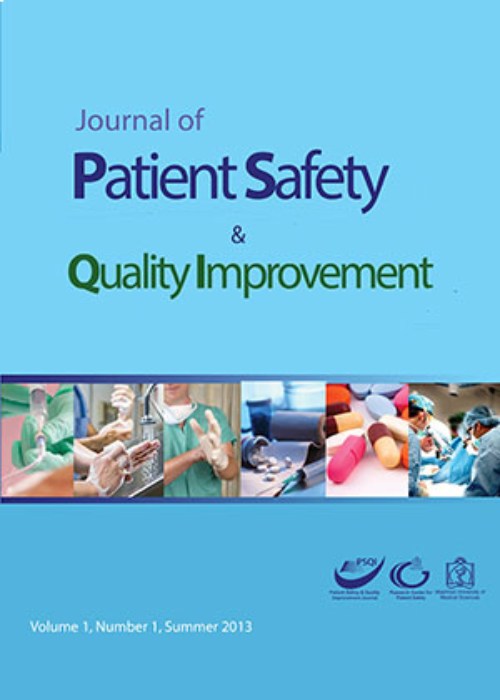Causal Inference and Analysis of Surgery Cancellation Risks
Author(s):
Article Type:
Research/Original Article (بدون رتبه معتبر)
Abstract:
Introduction
The provision of services in hospitals is the final level of the health care system chain, which usually provides the patients with advanced medical services, such as surgery. On the other hand, the cancellation of elective surgeries is one of the problems, which reduces the quality of service delivery and decreases hospital's efficiency and patients' satisfaction followed by increases in patients' costs. This study presented an approach based on a fuzzy inference system to better assess these hazards and eliminate the related risks and investigate effective factors in the cancellation of elective surgeries. Materials and Methods
The present study conducted a case study in Shahid Arefian Hospital Urmia, Iran, during 2016-2017. Principal factors of surgery cancellations were collected from surgery documents in the hospital. These factors were divided into five classes, including paraclinical, clinical, systematic, surgeon, and patient. The hazards identified in these classes caused surgery cancellation. They were identified using the contribution of an expert team, including operating room supervisors, female and male surgery hospitalization supervisors, as well as two physicians. Results
According to the results, the proposed approach was more appropriate for creating discrimination between surgery cancellation hazards, compared to the traditional risk priority number (RPN) method. Surgeon fatigue, high PPT and PT, and airway problems were the first to third important hazards with RPNs equal to 120, 105, and 96, respectively. On the other hand, according to obtained results, not having internal medicine specialist counseling, low thyroid stimulating hormone, and unavailability of beds at intensive care units were three important and priority potential hazards with FRPNs equal to 8, 8, and 6, respectively. Conclusion
The proposed approach can better map hospital experts’ opinions to the fuzzy-based risk assessment system since it employs linguistic variables by hospitals’ experts, compared to conventional approaches. Moreover, it can help the hospital managements apply hospital resources to maximise their impacts on improving hospital efficiency.Keywords:
Language:
English
Published:
Journal Of Patient safety and quality improvement, Volume:8 Issue: 1, Winter 2020
Pages:
3 to 12
magiran.com/p2109230
دانلود و مطالعه متن این مقاله با یکی از روشهای زیر امکان پذیر است:
اشتراک شخصی
با عضویت و پرداخت آنلاین حق اشتراک یکساله به مبلغ 1,390,000ريال میتوانید 70 عنوان مطلب دانلود کنید!
اشتراک سازمانی
به کتابخانه دانشگاه یا محل کار خود پیشنهاد کنید تا اشتراک سازمانی این پایگاه را برای دسترسی نامحدود همه کاربران به متن مطالب تهیه نمایند!
توجه!
- حق عضویت دریافتی صرف حمایت از نشریات عضو و نگهداری، تکمیل و توسعه مگیران میشود.
- پرداخت حق اشتراک و دانلود مقالات اجازه بازنشر آن در سایر رسانههای چاپی و دیجیتال را به کاربر نمیدهد.
In order to view content subscription is required
Personal subscription
Subscribe magiran.com for 70 € euros via PayPal and download 70 articles during a year.
Organization subscription
Please contact us to subscribe your university or library for unlimited access!



